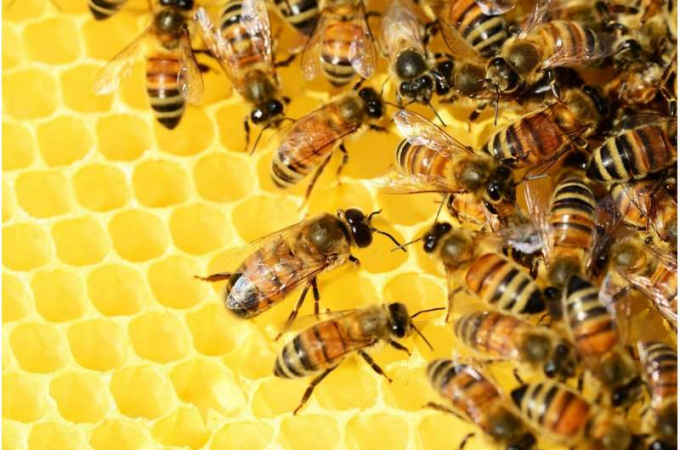November 27, 2025 | 23:47 GMT +7
November 27, 2025 | 23:47 GMT +7
Hotline: 0913.378.918
November 27, 2025 | 23:47 GMT +7
Hotline: 0913.378.918

Credit: Pixabay/CC0 Public Domain
A team of researchers from the University of Sydney, the ARC-Plant Protection Research Institute and York University, has found that workers in a species of honeybee found in South Africa reproduce by making near-perfect clones of themselves.
In their paper published in Proceedings of the Royal Society B, the group describes their study of the bees and what they learned about them.
Prior research has found that some creatures reproduce through parthenogenesis, in which individuals reproduce without mating. This form of reproduction has the advantage of not wasting time and energy on mating and the gene pool remains undiluted. The downside, of course, is loss of genetic diversity, which helps species survive in changing conditions.
Prior research has also shown that for most species, parthenogenesis is a less-than-perfect way to produce offspring. This is because some tiny bit of genetic material is generally mixed wrong—these mistakes, known as recombinations, can lead to birth defects or non-productive eggs. In this new effort, the researchers have found a kind of honeybee that has developed a way to avoid recombinations.
The researchers found that South African Cape honeybee queens reproduce sexually, but the workers reproduce asexually. They then conducted a small experiment—they affixed tape to the reproductive organs of a queen, preventing males from mating with her, and then allowed both her and the worker bees in the same hive to reproduce asexually.
They then tested the degree of recombination in both. They found that offspring of the queen had approximately 100 times as much recombination as the worker bees. Even more impressive, the offspring of the worker bees were found to be nearly identical clones of their parent. More testing showed that one line of worker bees in the hive had been cloning themselves for approximately 30 years—a clear sign that workers in the hive were not suffering from birth defects or an inability to produce viable offspring.
It also showed that they have evolved a means for preventing recombination when they reproduce. The researchers note that despite their unique abilities, the bees are still in line with evolutionary theory—they are simply doing what works best for their continued existence.
(Phys.org)

(VAN) On November 27, in the meeting with Minister Tran Duc Thang, Mayor Yin Yong shared Beijing’s experience to improve environment and air quality.

(VAN) After 30 years, both sides identified strategic areas of cooperation: sustainable production, increasing coffee value and training for farmers.
/2025/11/27/4910-4-164708_294.jpg)
(VAN) On the afternoon of November 27 in Beijing, Minister of Agriculture and Environment Tran Duc Thang held a working session with several major Chinese enterprises operating in the agriculture and environment sector.

(VAN) The Department of Animal Health issued a provisional guideline requesting local authorities to increase surveillance, collect samples for testing, and conduct epidemiological investigations according to the established procedure.

(VAN) The United Nations recommends that Vietnam utilize data and artificial intelligence to enhance early disaster warnings and reduce GDP losses by 3.2% in the context of climate change.

(VAN) On the morning of November 27 in Beijing, Minister Tran Duc Thang and the Deputy Commissioner General of the General Administration of Customs of China signed a protocol on fresh jackfruit exports.

(VAN) As floodwaters recede, a vast network of irrigation works across eastern Gia Lai is emerging in a state of severe disrepair, with extensive damage demanding urgent restoration ahead of the 2025-2026 winter-spring cropping season.